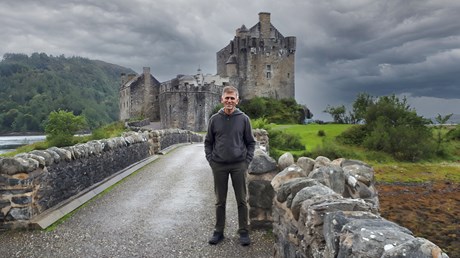How the son of a Hindu priest gradually made his peace with the “unfairness” of the Cross.

Even at the distance of over 40 years, I still remember having my fingerprints documented for my criminal record. It was the first time in my life I had felt ashamed about anything.
The young police constable was pleasant enough as he gently guided me through the process of fingers, thumbs, and ink pads. He was sensitive to the sense of grief originating from a single sound in the room: the uncontrollable weeping of my distraught mother sitting a few feet away, as my father tried quietly calming her.
As recent immigrants to the UK from India, they were confused and shocked. They had wrenched themselves from established lives as schoolteachers. They had traveled to England by sea, working in a shoe factory and selling bus tickets so that my brother and I could go to school. For families immigrating from the Indian subcontinent, providing an education for their children was (and still is) the driving priority. So when my parents discovered that their teenage son had spent years secretly engaging in arson and shoplifting just “for fun,” they could barely comprehend it.
Sometimes it takes the tears of a loved one to stop us in our tracks and focus our minds on where we’ve gone wrong. But what exactly was I ashamed of? My mother’s grief had brought sudden clarity about the damage I had caused to my family—shameful, lasting damage. It dawned on me that there really is a moral law in the universe, and I had overstepped it. Actions had consequences, just as my family had taught me. The Hindu idea of karma, I had learned, is that you get what you deserve. Here was karma, spectacularly demonstrated.
Debating Christianity
I am the son of a Hindu priest who was himself the son of a Hindu priest. In the working-class ...
from Christianity Today Magazine
via


.gif)

.gif)
.gif)
